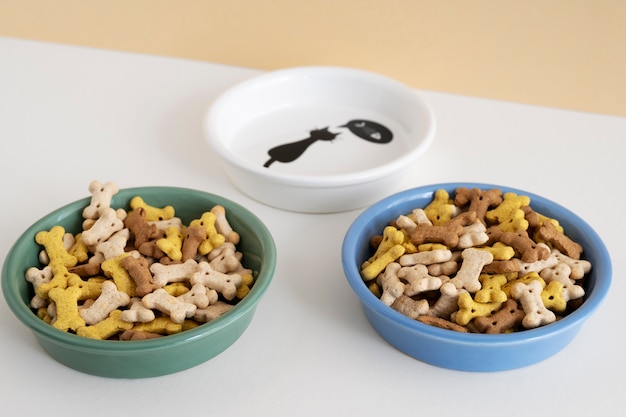Nutrition Tips for Pet Wellness in North Texas


Nutrition Tips for Pet Wellness in North Texas
As pet owners in North Texas, you know that our unique climate in McKinney brings special challenges when it comes to keeping your furry family members healthy and happy. Long, hot summers, changing seasonal allergens, and the active lifestyles many pets enjoy here all mean that good nutrition is more than just a daily routine—it’s the foundation of your pet’s wellness and longevity. At Pet Method Dallas Fort Worth, our veterinary team is dedicated to helping you make smart nutrition choices that support your pet’s energy, immune system, and overall health year-round.
In this comprehensive guide, we’ll explore essential pet nutrition tips tailored to the McKinney area, address how proper diet can help your pet thrive in our climate, and show you how to spot signs of nutritional issues before they become serious. Whether your goal is to boost your pet’s vitality, manage a chronic health condition, or simply keep up with your busy family life, our team at 260 N Coit Rd, Suite 130, McKinney, TX, 75071 is here to help you every step of the way. If you’re searching for the best advice on pet nutrition tips in McKinney, or wondering how to find a vet near me who understands local pet wellness needs, you’re in the right place. For personalized support, consider our nutritional assessment services designed to evaluate and improve your pet’s diet.
Recognizing Nutrition-Related Problems in Your Pet
Every pet is unique, but there are clear signs that may indicate your dog or cat could benefit from a dietary review. As a pet owner in North Texas, being aware of these subtle changes can help you address issues before they impact your pet’s health or quality of life.
Some of the most common signs of nutrition-related problems include noticeable changes in your pet’s coat quality, such as dryness, excessive shedding, or dullness; unexpected weight gain or loss; decreased energy or reluctance to exercise; recurring digestive upset, including vomiting or diarrhea; and frequent itching or skin irritation, especially during allergy season when environmental triggers are high in McKinney. Additionally, pets may show signs of poor nutrition through brittle nails, persistent bad breath, or a sudden loss of interest in food. In some cases, you might also notice an increase in thirst or urination, which could relate to dietary imbalances.
It’s important to remember that these symptoms can overlap with other medical issues, so a veterinary evaluation is the best way to determine whether your pet’s nutrition is truly the culprit. If you’re unsure, our veterinary professionals can help assess whether diet is playing a role in your pet’s condition and recommend appropriate next steps.
Why Nutrition Matters in the McKinney, TX Climate
The North Texas environment poses unique challenges that make proper nutrition essential for pets. The extended warm season means pets are often more active outdoors, potentially increasing their caloric and hydration needs. High temperatures can also lead to dehydration, which may not always be obvious until your pet’s energy starts to dip or their skin loses its usual elasticity. In addition, local allergens, such as grasses and pollens prevalent in McKinney and surrounding communities, can exacerbate skin sensitivities or digestive issues, making targeted dietary choices even more important.
Choosing the right food supports your pet’s ability to manage these environmental stressors. For instance, pets that spend plenty of time outdoors may benefit from diets rich in high-quality proteins for muscle support, while those with sensitive skin or allergies may need omega-3 fatty acids and carefully selected carbohydrate sources. Hydration remains a top priority in our climate; pets need constant access to fresh water, and certain wet foods can contribute to their daily fluid intake, especially when the heat is at its peak.
It’s also important to consider that as pets age, their nutritional requirements change. Senior pets in McKinney may develop conditions like arthritis or kidney disease, both of which can be managed more effectively with specialized diets tailored to their specific needs. Our veterinary team at Pet Method Dallas Fort Worth is equipped to help you navigate these transitions and ensure your pet receives the right nutrients at every life stage.
Professional Treatment Options and Nutritional Guidance
When you visit our animal hospital for pet wellness in McKinney, TX, our veterinarians begin with a thorough health assessment that includes a review of your pet’s current diet, lifestyle, and any medical concerns. If nutrition is suspected to be part of the problem, we may recommend diagnostic testing such as bloodwork or allergy screening to identify any underlying issues that could be addressed through dietary changes.
Treatment approaches for nutrition-related concerns involve recommendations for high-quality commercial diets that meet all of your pet’s nutritional requirements, as well as guidance on portion sizes and feeding frequency. In some cases, our veterinary team may suggest a prescription diet designed to manage chronic conditions like diabetes, kidney disease, or food allergies. For pets with unique needs, we offer nutritional assessment services to develop a custom plan that supports their health and lifestyle.
Supportive care may also include monitoring your pet’s weight and body condition over time, providing advice on healthy treats, and discussing how to safely transition your pet from one diet to another. We understand that every pet family has different routines; that’s why our veterinary professionals take a personalized approach, working with you to find solutions that fit your schedule and your pet’s preferences.
Preventive Strategies and Home Care for Pet Nutrition
Prevention is always better than cure, especially when it comes to nutrition and pet wellness in McKinney, TX. There are many steps you can take at home to support your pet’s dietary health and reduce the risk of nutrition-related issues.
Start by measuring your pet’s food accurately, using a kitchen scale or measuring cup to avoid over- or underfeeding. Offer a consistent feeding schedule to help regulate digestion and avoid unnecessary weight gain. Choose foods that are appropriate for your pet’s age, breed, and activity level; your veterinarian can help you select the best options based on your pet’s specific needs.
In North Texas, keeping your pet hydrated is crucial. Always provide plenty of fresh water, and consider offering wet food or making ice treats during hot spells to encourage fluid intake. Watch for signs of dehydration, such as sunken eyes or sticky gums, especially during the summer months.
Monitor your pet’s weight, energy level, and coat condition regularly to catch any subtle changes early. Avoid giving table scraps or high-calorie treats, as these can lead to obesity or digestive upset. Instead, incorporate healthy snacks like small pieces of lean meat or certain fruits and vegetables, if approved by your veterinarian.
For pet owners with busy lifestyles, meal-prepping in advance or using automatic feeders can help maintain a consistent routine. If you have questions about your pet’s nutrition, don’t hesitate to reach out to your veterinary team for advice or to schedule a nutritional assessment.
When to Seek Help from Your Local Veterinarian
Knowing when to seek veterinary care for nutrition concerns is vital for your pet’s well-being. It’s time to schedule an appointment if your pet experiences persistent vomiting or diarrhea, significant weight changes in a short period, ongoing lack of appetite, sudden lethargy, or symptoms like hair loss and skin lesions. Additionally, if you notice signs of dehydration, such as dry gums or decreased urination, prompt attention is needed, especially during the hotter months in McKinney.
Pets with chronic health conditions, such as diabetes, kidney disease, or food allergies, require regular monitoring to ensure their dietary needs are being met. If your pet is recovering from surgery, illness, or a major life change—such as a new addition to the family or a move—nutritional support can help ease their transition.
Remember, while online resources and advice from friends can be helpful, only a qualified veterinary team can provide tailored recommendations based on a thorough examination and an understanding of your pet’s unique needs. If you’re searching for a quality vet near me or want the best in pet nutrition tips in McKinney, our team at Pet Method Dallas Fort Worth is always here to help.
Supporting Your Pet’s Wellness Year-Round: The Pet Method Dallas Fort Worth Difference
Ensuring your pet thrives in North Texas starts with a balanced diet, careful monitoring, and proactive veterinary support. At Pet Method Dallas Fort Worth, we believe that nutrition is the cornerstone of lifelong wellness, and our team is committed to helping every pet family in McKinney and surrounding communities make the best choices for their companions.
If you’re ready to take the next step in supporting your pet’s health, we encourage you to schedule a nutritional assessment or wellness visit with our veterinary professionals. Our nutritional assessment services provide personalized recommendations for everything from daily diets to managing chronic health conditions. Whether you need advice on hydration, allergy management, or choosing the right food for your pet’s breed and age, our team is here to answer your questions and partner with you for every stage of your pet’s life.
Contact us today at (469) 581-8609 or visit our convenient location in McKinney to schedule your appointment. When you’re looking for the best veterinarian near me or want expert advice on pet nutrition tips in McKinney, trust Pet Method Dallas Fort Worth to be your partner in pet wellness. Your pet’s health, comfort, and happiness are always our top priority.
This blog is intended for informational purposes only and does not replace professional veterinary care. Always consult your veterinarian for personalized advice regarding your pet’s health and nutrition needs. For more information on animal nutrition, visit the American Veterinary Medical Association.



















